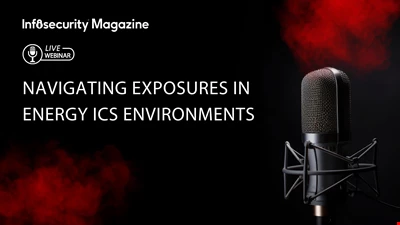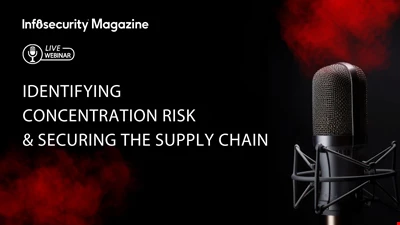Infosecurity News
The Anonymous logo is not for sale
A French T-shirt company that trademarked the Anonymous headless man logo and ‘expect us’ wording has closed shop in fear of reprisals.
Red Sky hacker revealed by Anonymous
There are two main factions within Anonymous: the anarchist and the hacktivist. One believes in no rules; the other takes a moral view of its responsibility to society. One of them handed over the Red Sky hacker.

Cybersecurity Act goes down to defeat in Senate
The Senate failed on Thursday to pass the Cybersecurity Act (S 3414) despite months of negotiations between Democrats and Republicans and significant modifications of the legislation.

Agency drags feet on removing social security numbers from Medicare cards
The Centers for Medicare and Medicaid Services (CMS) is delaying the removal of social security numbers (SSNs) from Medicare cards, the Government Accountability Office (GAO) told a House panel this week.

Sensitive court documents ‘recycled’ in public bin
Hundreds of Madison County (Illinois) court documents containing personal information on victims involved in protection order cases were recently left in a public recycling bin behind the county’s Wood River facilities.

Chrome 21 fixes 15 security holes
Google has shipped version 21 of its Chrome browser, fixing 15 bugs in the process.

US federal cybersecurity incidents jumped 20% last year
Cybersecurity incidents involving US federal computer systems increased 20% last year, according to statistics released by the Government Accountability Office (GAO).

California prison workers settle data breach lawsuit
Employees at the Pelican Bay State Prison in California have reached a settlement with the state over allegations that their personnel information was exposed to prison inmates.

16 code defects uncovered for open source code bases
Software testing firm Coverity has uncovered 16 code defects, similar to a defect recently found in the MySQL database server, in nine different open source code bases, including Nmap, OpenBabble, and Ncbi-tools.
PPTP traffic should be considered unencrypted
This is the view of Moxie Marlinspike, who along with David Hulton first presented his method for cracking Microsoft’s CHAPv2 at Defcon, and has now described the process on CloudCracker.
Bachmann aide accuses candidate, senior staff of data theft
A campaign aide to former Republican presidential candidate Michele Bachmann is suing Bachmann and her senior campaign staff for allegedly stealing her private email list to promote the candidate among Christian home-school advocates in Iowa.
Better late than never: Wells Fargo appoints first CISO
In an announcement that boggles the infosec-savvy mind, global financial firm Wells Fargo has only just appointed its first chief information security officer (CISO).
Big Data Analytics should be used for security as well as commercial purposes
“Big data analytics can improve information security and increase cyber resilience” claims a new report from the Information Security Forum (ISF).
ENISA calls for joint effort between users and providers to secure online identities
ENISA notes that nearly 18.5 million user passwords have been stolen in just seven major hacks this year already, and has published guidelines on how both users and service providers can better secure them in the future.
New Morto worm variant emerges with file infection capability
A new variant of the Morto worm has added a file infection capability to the malware’s arsenal of weapons, warned a Microsoft researcher.
Korean hackers arrested for stealing data on 8.7 million mobile subscribers
South Korea’s National Police Agency (NPA) has arrested two hackers for stealing and selling personal information on 8.7 million KT mobile subscribers.
Black Hat 2012: Webroot Researcher Says Delayed Breach Disclosure is Advisable
At Black Hat in Las Vegas, July 27 2012, Grayson Milbourne - director of threat research at Webroot - told Infosecurity that sometimes it is best if a breach goes undisclosed until the company concerned has answers and a recovery plan.
All your speech belongs to Apple
Apple’s new Mountain Lion operating system is now available – but with it comes a surprising new twist to the terms and conditions for the new dictation capability. Apple gets and keeps the dictated files.
Rakshasa: Hindu demon – and permanent, undetectable backdoor
A security researcher has developed proof of concept for a PC backdoor that is both undetectable and very difficult to remove – and capable of infecting more than 100 different motherboards.
Apple to buy AuthenTec for $356 million
In a deal unanimously agreed by the AuthenTec board, but not yet by its shareholders, Apple Inc is to buy the mobile security firm at a price valuing shares at $8.00 – a 58% premium on the earlier closing price.



